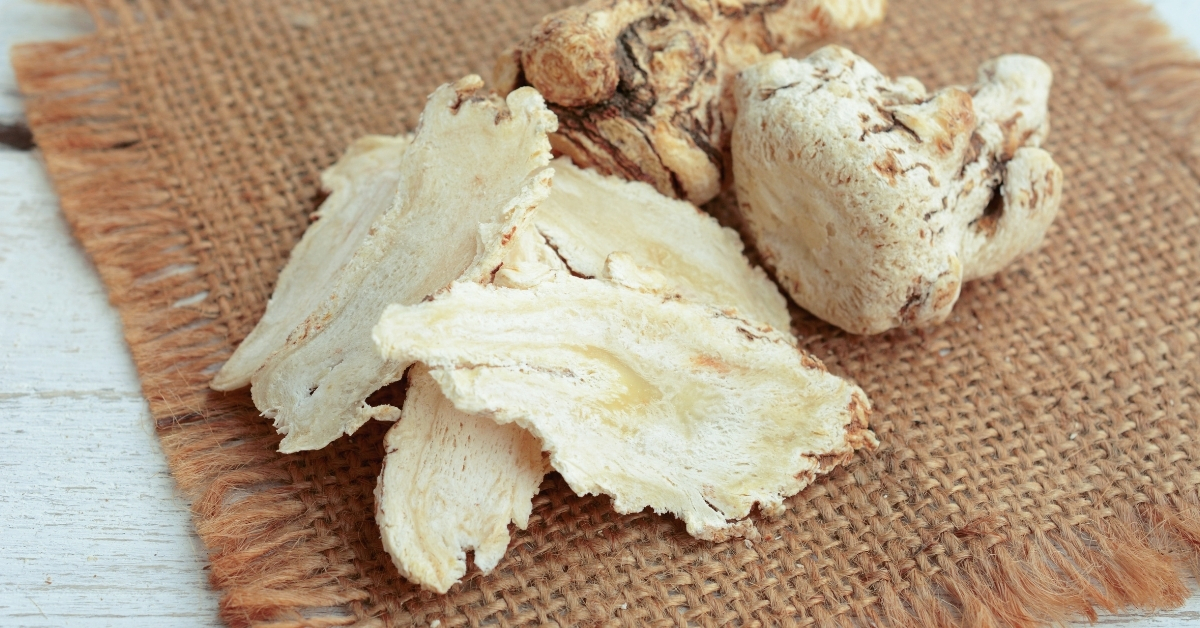In this monograph about dong quai:
📖 Introduction | 🌱 Botanical Description | 📜 Traditional Uses | 🔍 Phytochemistry | ✨ Applications and Uses | 🛡️ Safety Profile
📖 Introduction
Dong quai (Angelica sinensis) is a perennial herb prominently used in traditional Chinese medicine. It is often called “female ginseng” due to its popularity for treating women’s health issues.
| English Name | Dong quai |
| Latin Name | Angelica sinensis |
| Parts Used | Root |
| Traditional Uses | Menstrual cycle regulation, menopause symptoms relief, blood circulation support |
| Herbal Actions | Emmenagogue, blood tonic, anti-inflammatory |
🌱 Botanical Description
Scientific Classification
Angelica sinensis is part of the Apiaceae family.
Physical Characteristics
Dong quai has smooth, purplish stems and umbrella-shaped clusters of white flowers. The plant is mainly harvested for its fragrant, thick, and branched root.
Natural Habitat and Cultivation Details
Native to China, Japan, and Korea, dong quai thrives in cool, high-altitude mountain regions. It is typically cultivated by sowing seeds in the late fall and harvesting the root in the autumn of the third year of growth.
📜 Traditional Uses
Dong quai has been traditionally used to enrich blood, promote blood circulation, and regulate the immune system. In folklore and herbalism, it is highly regarded for alleviating menstrual cramps and menopausal symptoms.

🔍 Phytochemistry (Active Constituents)
Dong quai contains several active constituents that contribute to its medicinal properties:
- Coumarins: These compounds may help improve blood flow and alleviate pain. Dong quai is known to contain natural coumarin derivatives, which have antithrombotic properties.
- Phytosterols: Plant sterols that can support immune function. Phytosterols present in Dong quai may contribute to its immunomodulatory effects.
- Ferulic acid: An antioxidant that also provides anti-inflammatory benefits. Ferulic acid is a well-known antioxidant found in Dong quai that offers significant anti-inflammatory properties.
✨ Applications and Uses
Dong quai is utilized in herbal medicine for:
- Menstrual health: It is commonly used to relieve menstrual pain and regulate menstrual cycles.
- Cardiovascular health: The coumarins in dong quai may help improve circulation and potentially reduce blood pressure.
- Immune support: Its phytosterols may help enhance immune function.
Research supports dong quai’s role in these areas, particularly its effects on menstrual and cardiovascular health due to its blood-enhancing and circulatory effects.
🛡️ Safety Profile
Dong quai is generally safe when used as directed but should be used cautiously due to its effects on blood circulation. Possible side effects include sensitivity to sunlight, especially if taken in large amounts.
It should not be used during pregnancy due to its potential to stimulate the uterus, which might lead to miscarriage. Dong quai may also interact with blood thinners, other medications that affect blood clotting, and hormonal medications due to its potential phytoestrogen effects.
Always consult with a healthcare provider before starting any new treatment regimen with dong quai, particularly if you are taking other medications or have underlying health conditions.
